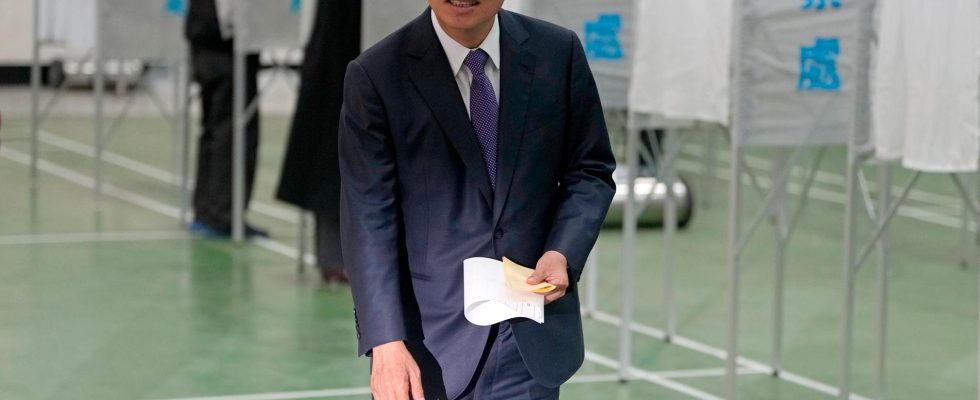unsaveSave
share-arrowShare
expand-left
fullscreen Taiwan’s current vice president and presidential candidate, the DPP’s Lai Ching-te, votes in Saturday’s election. Photo: Ng Han Guan/AP/TT
Chinese social media platform Weibo blocked a hashtag that made posts about the election among the most popular shortly after the polls in Taiwan opened. The election is met with great excitement by the rest of the world, not least China and the United States.
The administrators of Weibo posted a message shortly after the polling stations in Taiwan opened their doors that posts with the hashtag related to the topic (read: the election) will not be displayed. However, it was still possible to see posts about the election, without the hashtag.
Weibo is a microblog and platform in China that is a mix of Chinese equivalents to the likes of X, and Facebook,
Weibo is estimated to have over half a billion active users. By Saturday morning, before the platform blocked the hashtag, posts with it had received more than 160 million views.
China sees the island nation of Taiwan as part of China and has threatened to intervene if the “wrong” leader is elected, i.e. a president who increases the distance with China and further deteriorates relations
The Chinese military vowed yesterday Friday, the day before the election, to crush attempts to work for an independent Taiwan.
China believes that Taiwan should be incorporated into the People’s Republic.
”The Chinese People’s Liberation Army maintains high vigilance at all times and will take all necessary measures to firmly crush attempts at an ‘independent Taiwan’ in all forms,” Defense Ministry spokesman Zhang Xiaogang said in a statement.
He accused Taiwan’s ruling DPP party of pushing the island toward “dangerous war conditions” by buying weapons from the United States.
The election on the strategically and economically important island is being followed with great interest by the outside world as the election result will have a major impact on Taiwan’s relationship with China.
THE FACTS The election in Taiwan
The election in Taiwan will be held on Saturday 13 January and will be decided in a single round of voting.
The electoral system in Taiwan is very robust but China engages in information influence before the election. Around 19.3 million of the island’s 23.6 million inhabitants can go to the polls. About a million of them are voting for the first time.
The current ruling party is the Democratic Progressive Party (DPP) whose presidential candidate Lai Ching-Te is currently vice-president and has a rather tough attitude towards Beijing.
The major opposition party is the Nationalist Kuomintang (KMT), whose candidate is Hou Yu-Ih. The KMT is considered to have closer ties to Beijing than the DPP.
The third party, TPP, is represented by Ko Wen-Je in the election. The party has great support among young voters but has lagged far behind the other two parties in opinion polls. The party has positioned itself politically between the two more traditional parties DPP and KMT.
No opinion polls may be conducted in the last ten days before the election in Taiwan. According to the latest opinion polls, Lai had a 3 to 11 percentage point lead over Hou. Ko came last in all surveys. However, the opinion institutes have pointed out that the differences between the surveys were significant and were often within the margin of error.
The new president will be sworn in on May 20.
Read more
